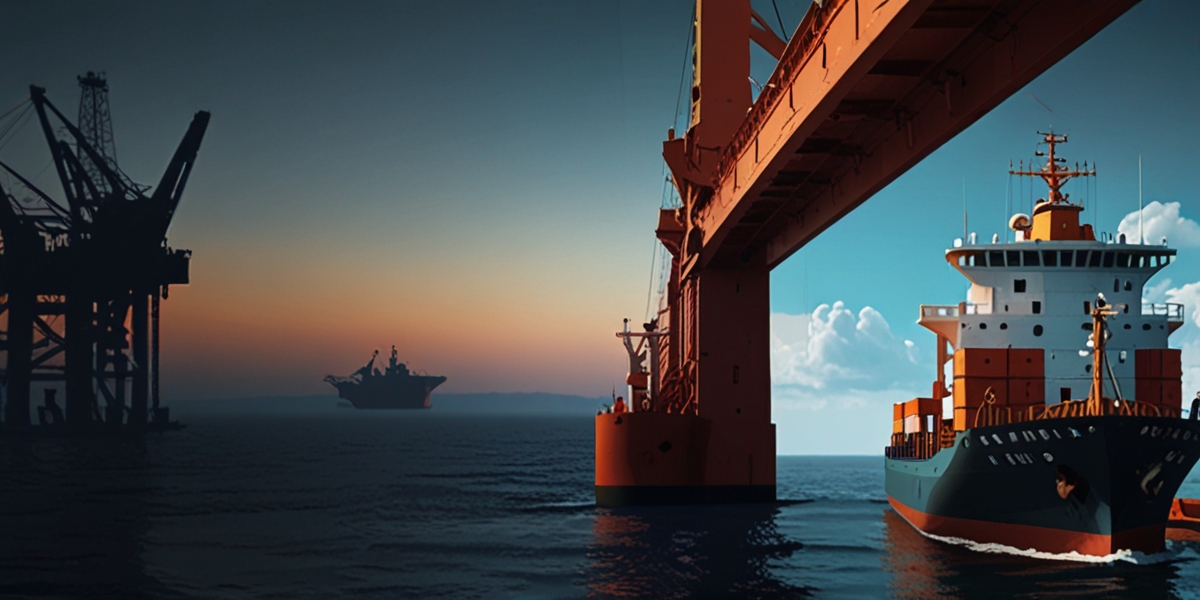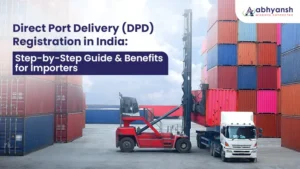As a leading shipping and logistics company in India, Abhyansh is thrilled to witness the remarkable growth of India’s maritime industry. The 12 major ports under the Union government’s ownership have seen a significant uptick in cargo handling, with a 4.45% increase in FY24. This surge in growth signals a new era of efficiency for the industry, with India’s ports handling approximately 95% of the nation’s international trade volume.
The Ministry of Ports, Shipping, and Waterways reports that major ports collectively handled 12.310 million TEUs, up 8.06% from FY23’s 11.392 million TEUs. Jawaharlal Nehru Port Authority led the way, managing 6.43 million TEUs, over half of the total volume. Petroleum, oil, and lubricants (POL) cargo increased 5.06% to 245.990 mt, while iron ore shipments surged 32.68% to 61.031 mt.
Several factors are driving the industry’s growth, including infrastructural development, technology advancements, policy reforms, and public-private partnerships. India’s infrastructural development has significantly boosted port operations, with specialized terminals like ICTT in Cochin and LNG in Dahej Port optimizing resources and enhancing efficiency. The Sagarmala project aims to streamline cargo handling and transport for cost-effective logistics.
Technology advancements have also played a crucial role, with the implementation of Radio Frequency Identification (RFID) based Port Access Control Systems (PACS) enhancing security and streamlining operations. Upgraded systems like the ‘Port Community System’ (PCS), along with ‘Direct Port Delivery’ and ‘Direct Port Entry’, have simplified data flow and operational processes, making business easier at ports.
Policy reforms have also contributed to the industry’s growth, with private ports benefiting from price flexibility and the government permitting non-major ports to set their own tariffs. Project UNNATI, launched by the Indian government, seeks to improve operations at key ports, while the National Logistics Portal (Marine) links logistics stakeholders, boosting efficiency and transparency.
Public-private partnerships have also played a significant role, with 45 projects planned for non-major ports, out of which 31 projects are being implemented through PPP with a total investment of Rs. 45,973 crores (US$ 5.54 billion).
“At Abhyansh, we believe that the remarkable growth of India’s maritime industry is a direct result of the country’s investments in infrastructure development, port modernization, and initiatives that facilitate seamless trade. This, in turn, has led to more efficient operations and a significant boost to global trade,” says Abhiraj Gupta, CEO of Abhyansh.
With India set to invest $82 billion in port projects by 2035, the future looks bright for the maritime industry. Six new mega ports are in the pipeline under the National Perspective Plan for Sagarmala, and a project exceeding $96.48 million is underway to upgrade Syama Prasad Mookerjee Port, Kolkata. The government’s focus on integrating solar and wind-based power systems across key ports will also contribute to a more sustainable future.
As a leading shipping and logistics company, Abhyansh is committed to fostering a conducive environment for trade and economic progress. We are excited to be a part of this growth story and look forward to contributing to India’s maritime industry’s continued success.






